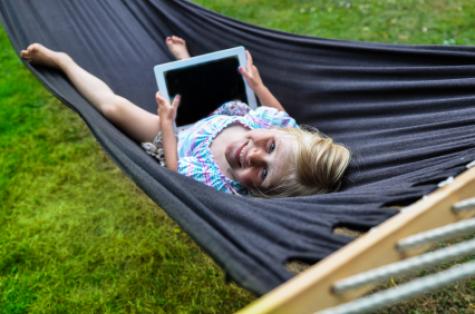Apps that keep young children occupied abound but there are some that are educational, fun and free to boot. What's more they can make an heirloom record of a young child's development.
"The really good apps for young children are the ones that invite parents to interact alongside their children," says QUT's Children and Youth Research Centre deputy director Dr Michael Dezuanni, who is studying the use of iPads in kindergartens for encouraging literacy and numeracy learning.
"There are many apps that keep children occupied. They might be educational at a basic level of letter and number recognition, but children quickly become bored with these apps and move on.
"Parents shouldn't assume that if they hand their children an iPad or other tablet they will learn from it."
Dr Dezuanni said there was some concern that digital technology could isolate children and discourage them from social interaction and physical play.
"In extreme cases children get isolated on iPads. We've seen a small handful stay on the iPad in our study but the majority use it for 15 to 20 minutes and move on to next thing to take their interest," he said.
"Our study showed kindergarten children wanted to share what they were doing and asked the teacher to come and help them.
"This means parents should not think of an iPad as a standalone device. Parents need to sit with their children and help them learn.
Dr Dezuanni said that Apps such as Book Creator, Draw and Tell and PicStich are good for young children.
"They invite young kids to interact in different ways and increase their communication skills while they are interacting with them.
"It is difficult for pre-schoolers to use text but with an iPad they can learn to combine different mediums to tell their own stories by taking photos, recording their voices and drawing pictures.
"Using these apps a child can take photos of, say, their backyard, or favourite toy or Christmas and make a poster or e-book about it and then share it.
"This multi-modal communication is the digital equivalent of a child drawing a picture and talking about it with their parents who then hang it on the wall for everyone to see."
Dr Dezuanni said children get the most benefit from an App if it’s an age-appropriate challenge.
“That's why parents need to sit with their children to see if they are frustrated or get through it too quickly."



















__small.png)










